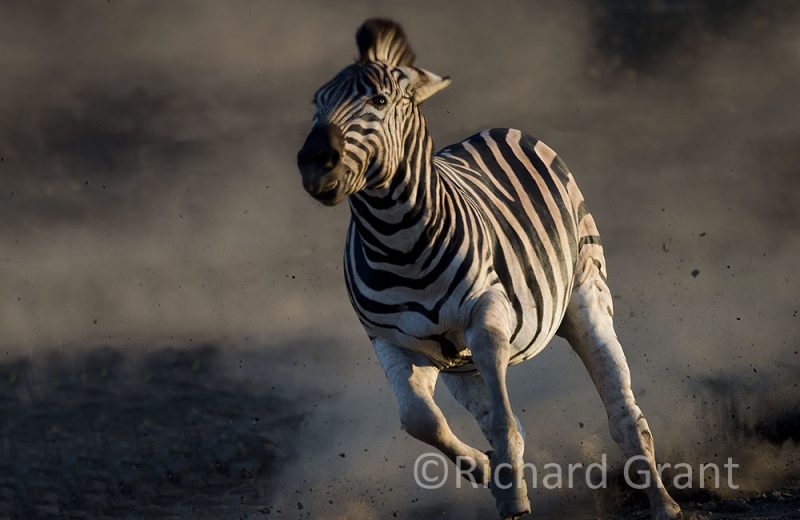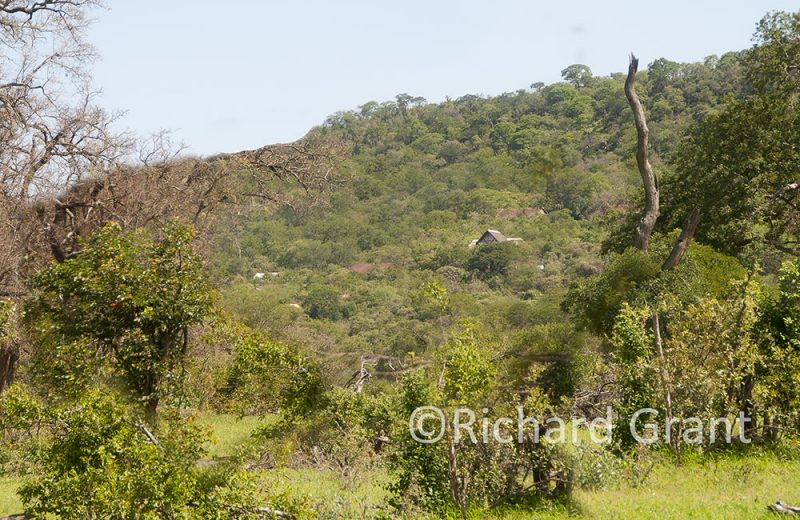Punda Maria – A Brief History
In 1903 the area between the Luvuvhu and Letaba River was proclaimed as a wildlife sanctuary – The Shingwidzi Reserve. In 1926 this was consolidated with the Sabie Reserve in the south creating the Kruger National Park.
In 1919 Capt JJ Coetzer was appointed as Shingwidzi’s first game ranger and he sited his first camp at the base of the Dzundzwini Hill, next to the present main north road H1-8.
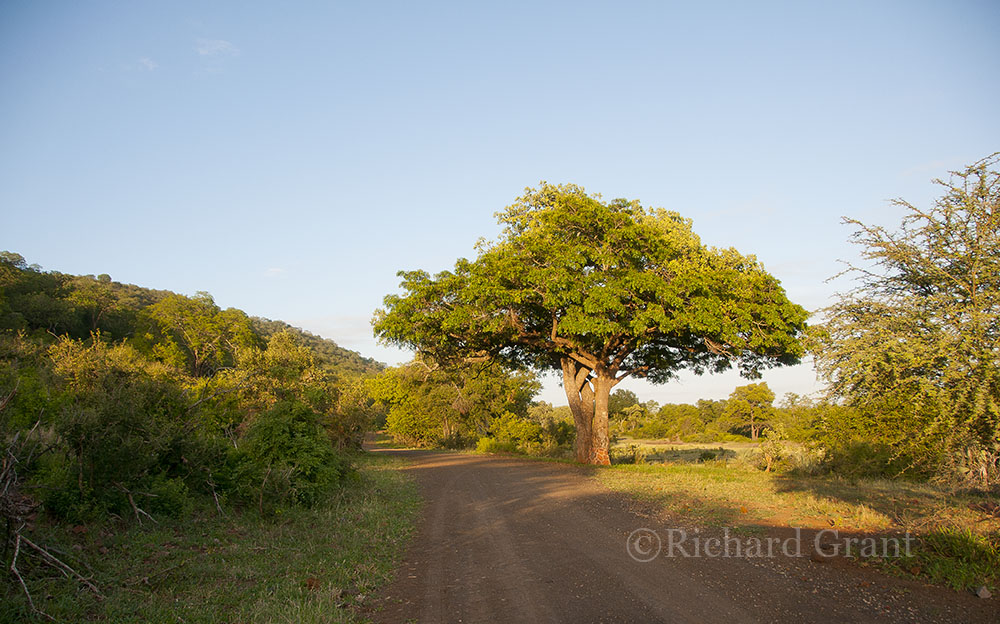
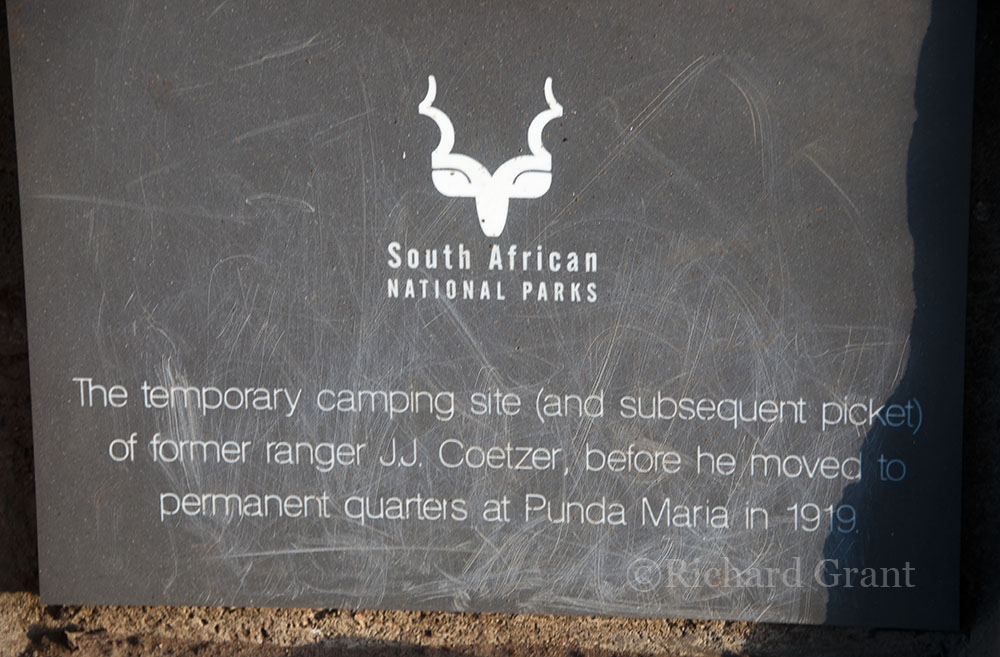
However, water soon became a problem and he relocated to a new site some 15Km on the side of a hill. The next photo was taken from his first campsite towards those distant hills behind which lies Punda Maria.
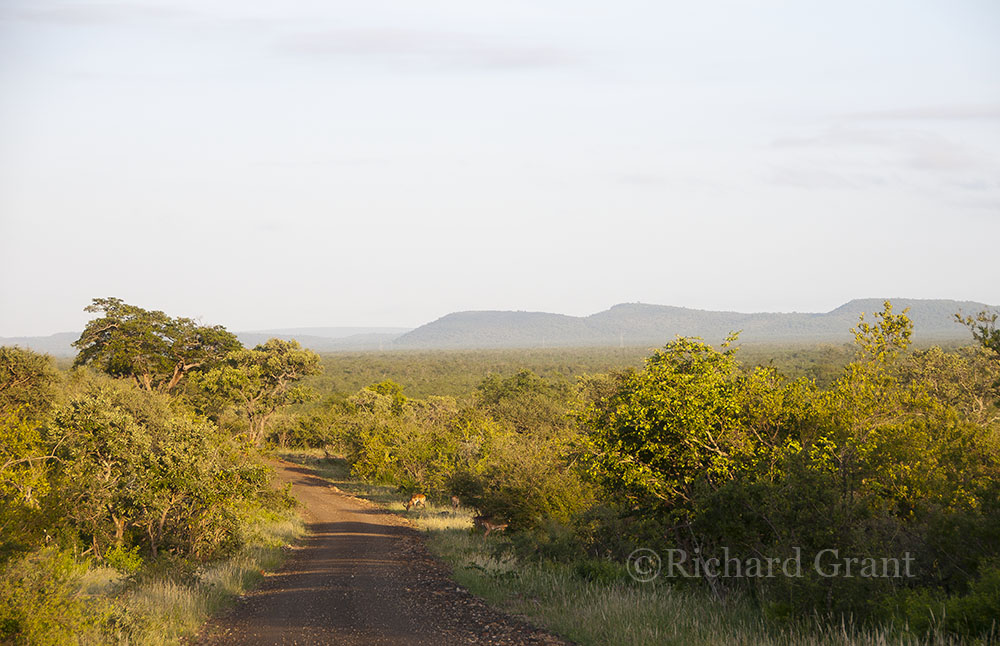
Coetzer had served in East Africa during WW1 and had become familiar with the Swahili language.
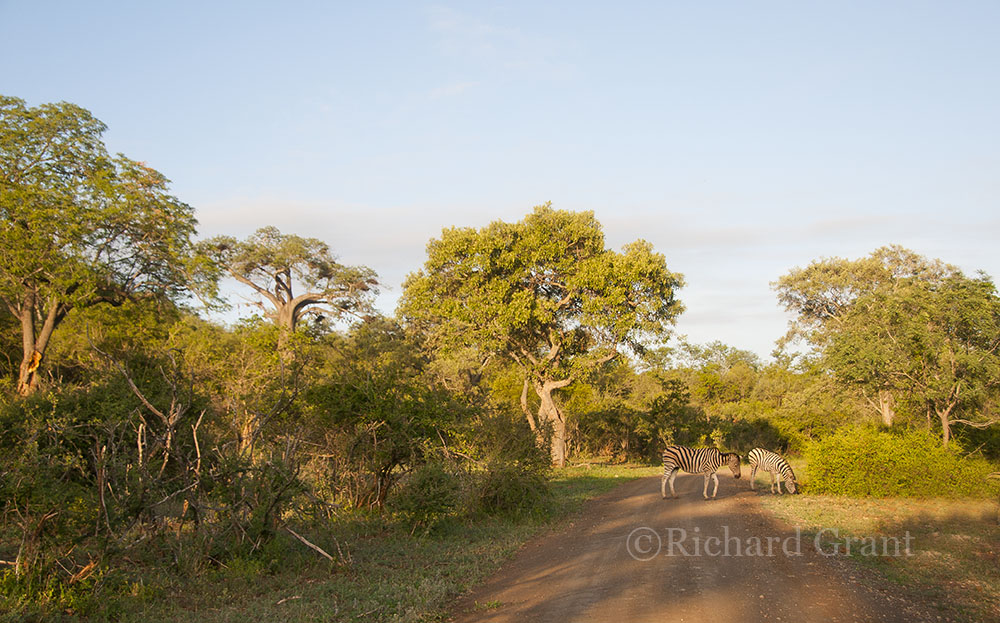
Thus when he saw herds of zebra near his new camp he named it after the Swahili name for zebra – Punda Milia (striped donkey). Apparently his wife (Maria) was partial to wearing black and white striped dresses so he modified the name to Punda Maria. Sanparks at one stage in the 60’s and 70’s changed the name back to Punda Milia but Coetzer’s family then produced old documents that conclusively showed that the true original name was Punda Maria and that is what it reverted to – again.
Coetzer was later trampled to death by an enraged elephant in 1935.
The trademark old huts at Punda Maria were built in the early 1930’s and of course have been refurbished at intervals since.
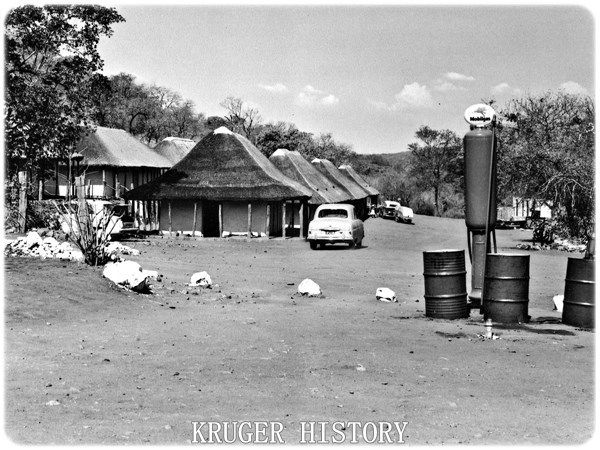
However, the original design survives and the beams inside that huts are now about 86 years old.
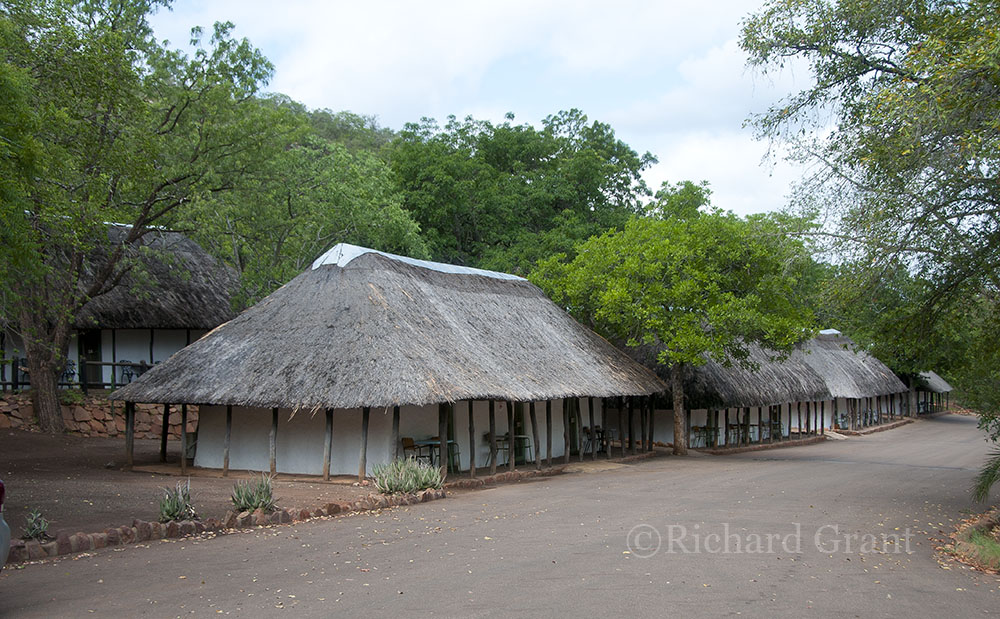
A baobab tree was planted at that time and this photo gives an idea of what an 86 year old baobab looks like.
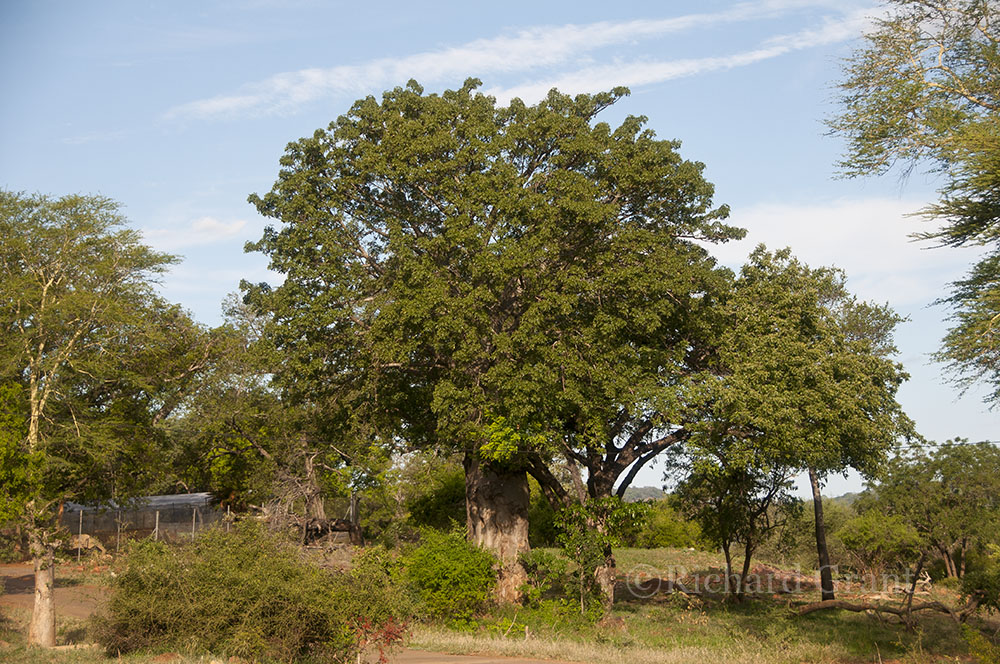
In the late 70’s powerlines were built from the Cahora Bassa Dam and these run through the Park near Punda Maria. Ignorant about these matters, I wondered why two sets powerlines and pylons should run parallel to each other, separated by about 2 Km’s. Even more mystifying is that each pylon only carries cables on one side but not the other.
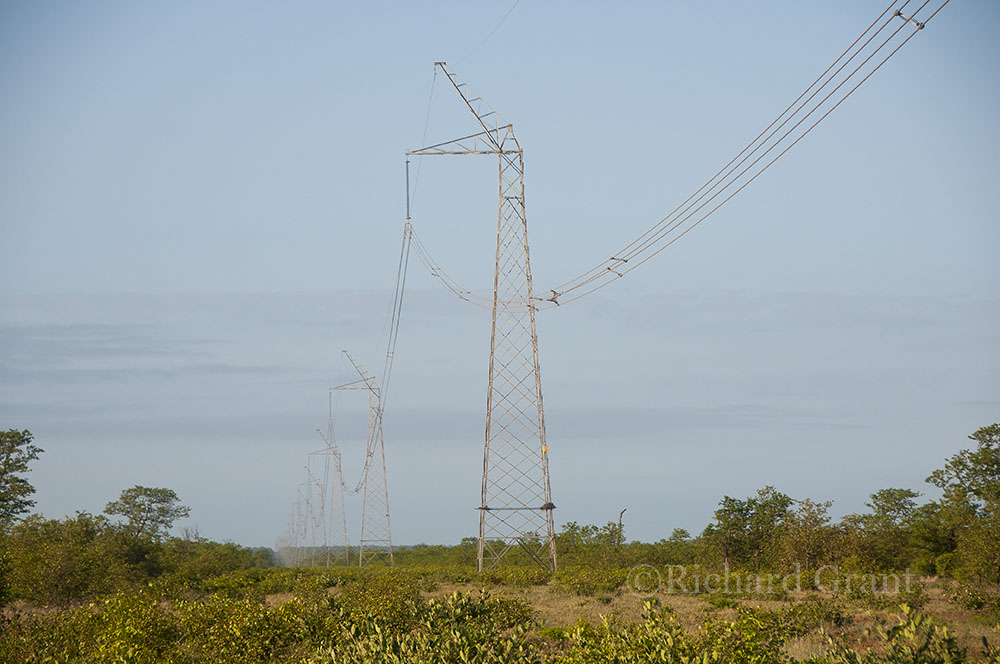
Werner Frenzel, our Eskom relation, explained to me that the power is more economically transmitted as Direct Current over long distances and that the ‘field’ around each power line is so great that the +ve and –ve lines must be separated by about 2Km’s. Most interesting.


